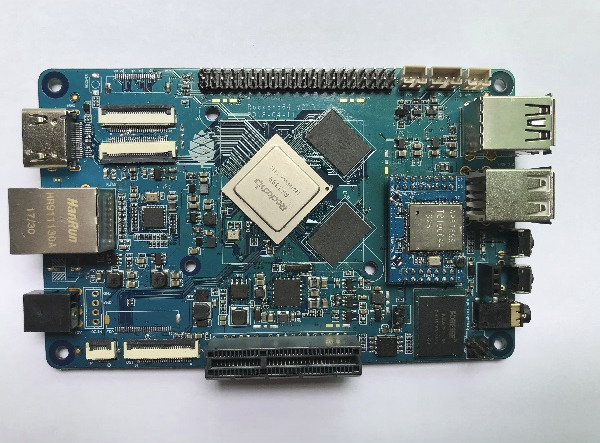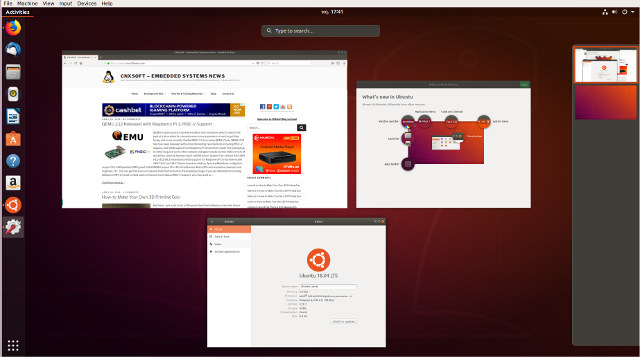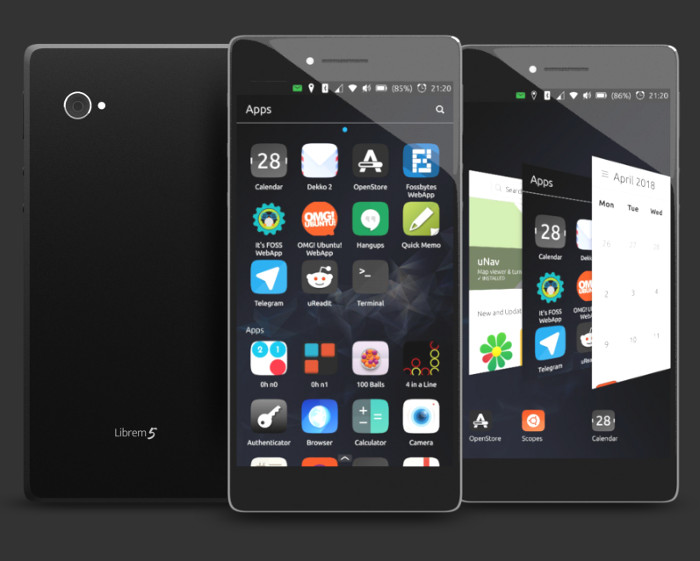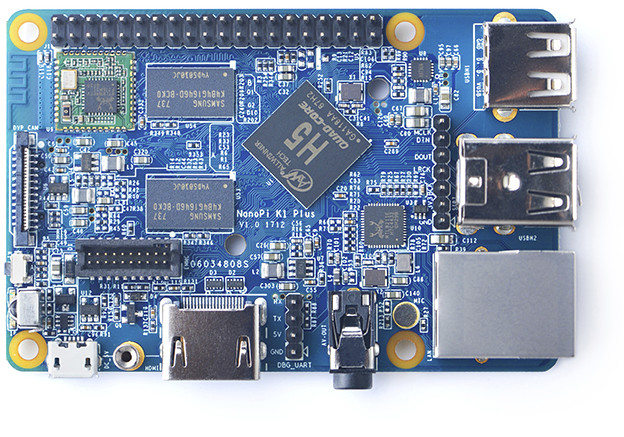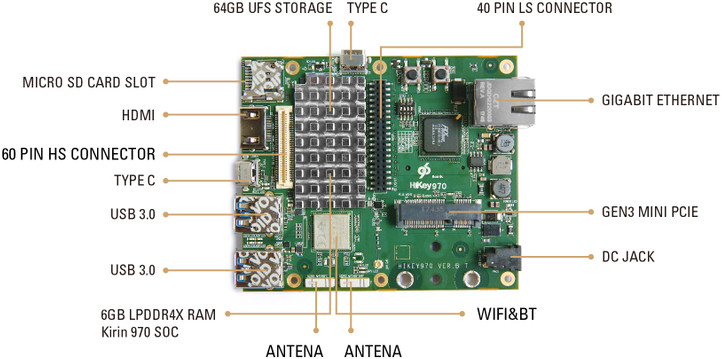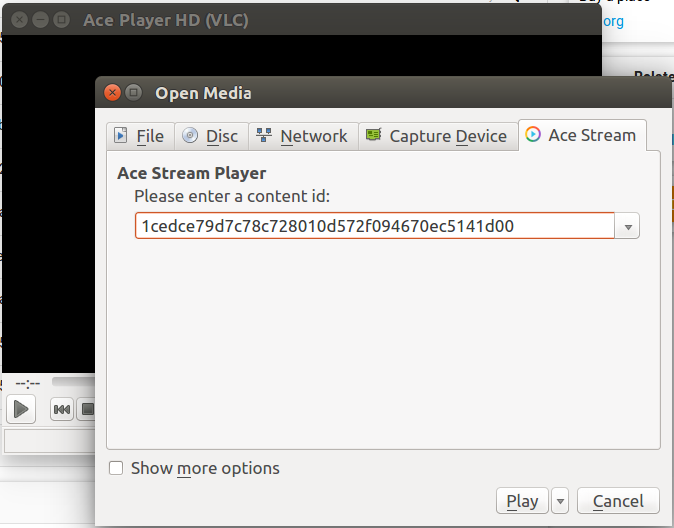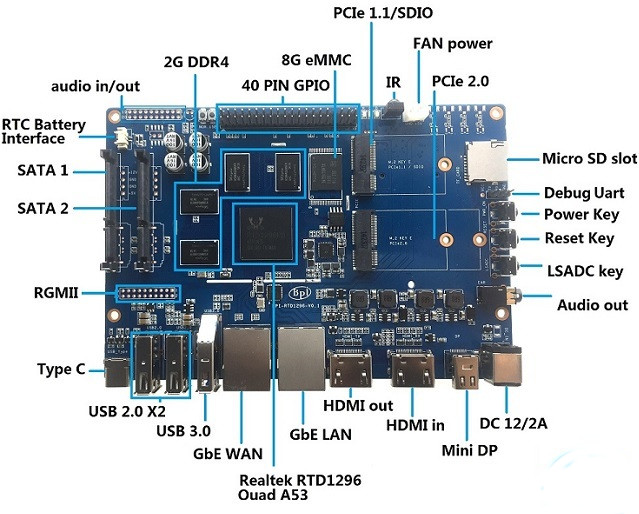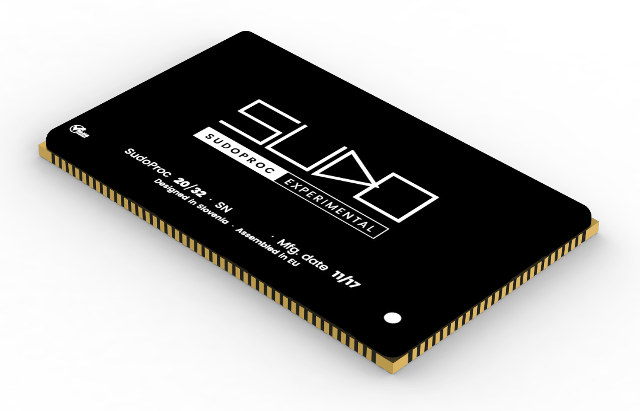Several Rockchip RK3399 development boards and SBCs were announced or launched in Q4 2017 / Q1 2018, including Orange Pi RK3399, ODROID-N1, Rock960, etc… RockPro64 was the most aggressively priced of the lot as it was expected to launch for about $60. The good news is that Pine 64 is now selling the first production batch for $59.99 (2GB RAM) or $79.99 (4GB RAM). The less good news is that software is still being worked on so the company only recommends it for early adapters and developers. RockPro64 specifications have changed a bit since the board now comes with LPDDR4 memory instead of LPDDR3: SoC – Rockchip RK3399 hexa-core processor with 2x ARM Cortex A72 cores up to 2.0 GHz, 4x Cortex A53 cores, and an Arm Mali-T860 MP4 GPU System Memory – 2 or 4 GB LPDDR4, dual channel Storage – eMMC flash module (up to 128 GB), micro […]
Ubuntu 18.04 Released – What’s New?
Canonical should release Ubuntu 18.04 “Bionic Beaver” long term support distribution later today. One of the most obvious change compared to Ubuntu 16.04 is the switch from Unity to GNOME 3.28 resulting in a fairly different user interface, although the company tried to keep the look-and-feel are close of the Unity version as possible. There are still some differences such as the dash now appearing on the top center of the screen. Eventually, Ubuntu 18.04 Desktop ISO file will be found on Ubuntu website, but in the meantime, I could update an Ubuntu 17.10 virtual machine to Ubuntu 18.04 using the following commands:
|
1 2 3 |
sudo apt update sudo apt dist-upgrade sudo do-release-upgrade -d |
I’ll update my main machine a little later, maybe after the dot release in July, and my server after that, just in case some bugs have gone unnoticed. You’ll be greeted with a “What’s new in Ubuntu” window after upgrade showing the main part of the […]
Ubuntu Touch to Be Officially Supported on Librem 5 Open Source Smartphone
Ubuntu Touch looked really promising as a Linux mobile operating system supporting mobile desktop convergence, so eventually some people would have been able to use a single device for their mobile and desktop needs. If was not for lack of trying, but sadly Canonical had to end the development of Ubuntu Touch due to lack of interest from phone manufacturers and the community at large, focusing their resources instead of the cloud and IoT. But some people were still very enthousiastic about Ubuntu Touch, Unity and convergence, so since the code was open source, UBPorts continued working on Ubuntu Touch on their own. UBPorts developers have now collaborated with Purism to make Ubuntu Touch one of the officially supported operating systems for the Librem 5 smartphone. Librem 5 will still ship with GNOME based PureOS, but Purism will support customers who want to easily install Ubuntu Touch or PureOS with […]
NanoPi K1 Plus is a $35 Allwinner H5 Development Board using Raspberry Pi Form Factor
Almost exactly one year ago, FriendlyELEC launched NanoPi K2 board powered by Amlogic S905 processor, following Raspberry Pi 3 form factor, but adding an eMMC flash socket, Gigabit Ethernet, 4K video playback, an I2S header, more memory (2GB RAM), and doing without a camera or LCD display interface. The company has now launched another similar looking model – NanoPi K1 Plus – based on Allwinner H5 processor, also equipped with one DVP camera connector, but losing one USB 2.0 port, and HDMI is limited to 4K @ 30 Hz. NanoPi K1 Plus specifications: SoC – Allwinner H5 quad-core Cortex-A53 processor @ 1.3+ GHz with Mali-450MP GPU System Memory – 2GB DDR3 Storage – micro SD card slot, eMMC flash interface Video Output – HDMI 1.4 up to 4K @ 30 fps, CVBS (composite) Audio HDMI digital audio output 3.5mm audio jack On-board microphone 7-pin 2.54mm pin header Connectivity – Gigabit […]
Hikey 970 Development Board is Now Up for Pre-order for $299.99
Four A.I. development boards compliant with 96Boards specifications were announced at Linaro Connect HK 2018 last month: HiKey 970, Ultra96, as well as ROCK960 PRO & Enterprise Edition. So for we only knew pricing for Ultra96 ($249), but I’ve now noticed Hikey 970 “Super Edge AI Computing Platform” is now up for pre-order for $299.99 on Lenovator website, with shipping planned for the end of April. [Update: Also found on Seeed Studio for the same price] Hikey 970 specifications: SoC – Huawei/Hisilicon Kirin 970 with 4x Cortex A73 @ 2.36GHz, 4x Cortex A53 @ 1.8GHz, Arm Mali G72-MP12 GPU, NPU (Neural Processing Unit) with 256MAC/cycle @ 960MHz System Memory – 6GB 1866MHz, 4 Channel LPDDR4x Storage – 64GB UFS storage, micro SD card slot, PCIe Gen3 on M.2 M key connector Video Output – HDMI 1.4 type A up to 1080p60 (TBC), 1x 4-lane MIPI DSI (via HS expansion connector) […]
How to Install and Use Ace Stream Easily in Ubuntu / Mint Linux
Ace Stream enabling the streaming of videos using P2P (peer-to-peer) technology – specifically BitTorrent protocol – and is especially useful for live streams, but also works for Audio and Video on Demand, and IOTT (Interactive-Over-The-Top). Ace Stream is implemented in a fork of VLC (Ace Player HD) working in Windows, Linux and Android, and I’ve found Full HD quality to be higher than services like YouTube, and with less buffering provided enough users watches the stream. It’s easy to use in Windows, and there used to be an Android app installable from the Play Store but it’s been removed, possibly because of the association of the solution with piracy. But just like Kodi, it’s up to do what you want to use it for. Using Ace Player was easy in Ubuntu up to version 14.04 thanks to a ppa, but with Ubuntu 16.04 it become a little more complicated as you […]
Banana Pi BPI-W2 Multimedia Router / NAS Board Launched for $93
SinoVoIP has really been busy for products launches this month, as Banana Pi BPI-W2 is the fourth board they’ve started selling on Aliexpress. The board is designed for media, storage, and networking application, thanks to its Realtek RTD1296 quad core processor combined with 2GB RAM, dual Gigabit Ethernet, dual SATA interfaces, M.2 slots, USB 3.0/2.0 ports, HDMI 2.0a output and input, and more. Banana Pi BPI-W2 specifications have not changed since the early announcement last fall: SoC – Realtek RTD1296 quad core Cortex A53 processor with ARM Mali-T820 MP3 GPU System Memory – 2GB DDR4 RAM Storage – 8GB eMMC flash (optional 16, 32 or 64GB), 2x SATA 3.0 interfaces, micro SD slot up to 256GB Video Output – HDMI 2.0a up to 4K @ 60 Hz, mini DP Input – HDMI 2.0 input up to 1080p60 Playback – HDR, 10-bit HEVC/H.265 up to 4K @ 60fps, H.264 up to […]
SudoProc is a Tiny LGA System-on-Module Based on Rockchip RK3288 SoC
Most systems-on-module are designed to be inserted into a baseboard thanks to an edge connectors or one or more board-to-board connectors, although I’ve also seen some with castellated pins allowing them to be soldered to the carrier board. The guys at Sudo Systems LLC have taken a different approach as they went with a custom designed 210-pin LGA (Land grid array) module instead, which is based on Rockchip RK3288 processor, and extremely compact at 65 x 40 x 4.3 mm. SudoProc module specifications: SoC – Rockchip RK3288 quad core Cortex-A17 processor @ up to 1.8 GHz with Arm Mali-T764 GPU System Memory – 4GB LPDDR3 (Samsung) @ 1066MHz; 2 x 32 bit, dual channel Video Decoding – H.264 decoder @ 2160p@24fps, H.265 decoder @2160p@30fps, and H.264/MVC/VP8 encoder 1080p@30fps Storage – 32GB, 64GB, 128GB, 256GB or 512GB eMMC 4.5 flash LGA package with 210 pins exposing: Storage I/F – 8-bit NAND […]

